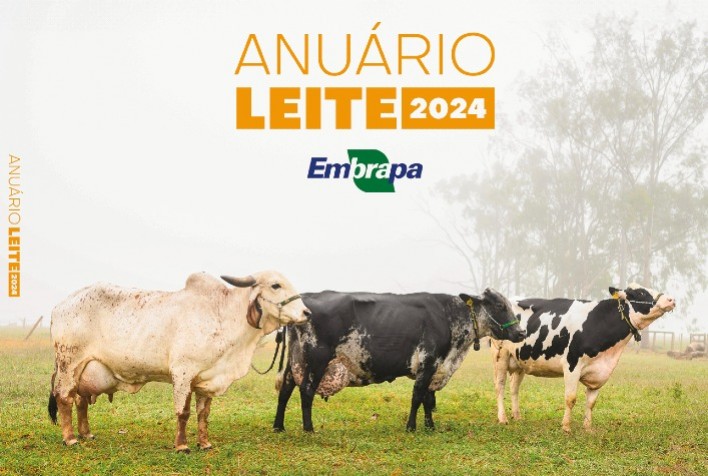Embrapa Dairy Cattle Presents a Complete Report on the Milk Chain and Its Challenges
Embrapa Dairy Cattle has launched the 2024 Milk Yearbook, a comprehensive publication that brings together statistics, analyses, articles and interviews, highlighting the research and technologies that drive productivity in the dairy chain, which is essential for food, job creation and income generation in the countryside.
The document reveals that, in 2023, Brazil reached a record in imports of dairy products, mainly from Argentina and Uruguay. This change in the supply and demand dynamics impacted financial margins throughout the chain, directly affecting the purchasing power of producers.
The economic situation is one of the central themes of the 2024 Milk Yearbook. Embrapa specialists analyze the market and production rates in Brazil and other countries. The article entitled “10 Reflections on Competitiveness and Challenges of Brazilian Milk” highlights the importance of efficient technical and economic management so that producers can sustainably maintain their activities, overcoming crises in dairy farming.
The Yearbook also lists several technologies developed by agricultural research that are capable of addressing the challenges of the sector. Among the innovations are practices for the recovery of degraded pastures, techniques aimed at reducing the carbon footprint of milk, and biosecurity protocols for dairy farms. In addition, a new solution coming soon, multibreed genomic evaluation, will allow the identification of Gir Dairy animals with superior genetics for crossbreeding with Holstein cattle, aiming at the production of a better Girolando.
The development and implementation of these technologies involve broad collaboration between public and private partners, joining forces to accelerate the technological evolution of the national dairy farming industry. The Yearbook also presents initiatives such as the Multi-User Laboratory for Bioefficiency and Sustainability in Livestock, a hub dedicated to generating knowledge and products in partnership with several institutions.
In addition to research, the publication emphasizes technology transfer, highlighting a pilot initiative for sharing knowledge in dairy farming through the Embrapa-ATER network, which includes state-level technical assistance and rural extension companies.
The consumer is another important focus of the Yearbook, which discusses current food trends. The publication addresses the dilemma faced by dairy lovers, in contrast to movements that question the consumption of dairy products, in addition to examining milk marketing campaigns from a global perspective, including the success of the “Drink More Milk Movement”.
The 2024 Milk Yearbook of Embrapa Gado de Leite is available for free download at: www.embrapa.br/gado-de-leite/.
Source: Portal do Agronegócio

